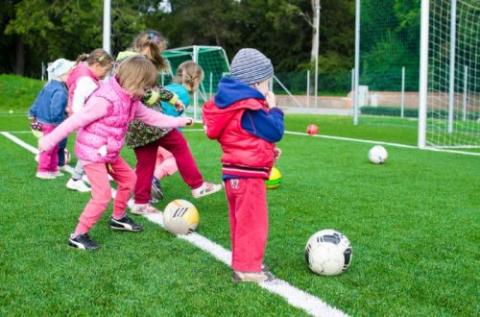Movement Games Support Executive Functions
Movement games can be an age-appropriate way for children to learn self-regulation. They are inexpensive and easy to use in a classroom setting. Games that require children to move their bodies according to certain rules require a broad range of executive functions. You can increase the complexity by adding or changing the rules. This ensures children’s skills are continually challenged, which is critical for development [1,2].
Several studies have found improvements in self-regulation and academic skills through the use of movement-based games. In one study, preschoolers who participated in an eight-week playgroup intervention had higher gains in letter-word recognition than non-participating children. Furthermore, playgroup children with low self-regulation prior to intervention had substantial gains in self-regulation skills [3].
Here are some variations of a well-known game that has been used in research to improve executive functions and self-regulation in preschool children:
The Freeze Game [2,3,4]
In the Freeze Game, children dance or move to music and freeze when the music stops. Even the basic version of the game can help children build executive functions, as it requires attention and movement control (i.e., self-regulation). Here are a couple variations to make the game more complex and further challenge children’s executive functions:
- Match the Figure
While the music plays, hold up a picture of a stick figure in a certain body position (such as standing with arms out like a T). When the music stops, the children must freeze their bodies in the same position as the stick figure. This uses working memory, attention, and self-control.
- Match the Music
In this variation of the Freeze Game, children are to match the speed of their movements to the rhythm of the music. When they hear peppy, fast music they move quickly, and they dance slowly to slow music.
These variations of the Freeze Game challenge the core executive functions and give children a chance to practice these skills. There are endless variations of common games that can help support children’s developing self-regulatory skills. Be creative and have fun!

